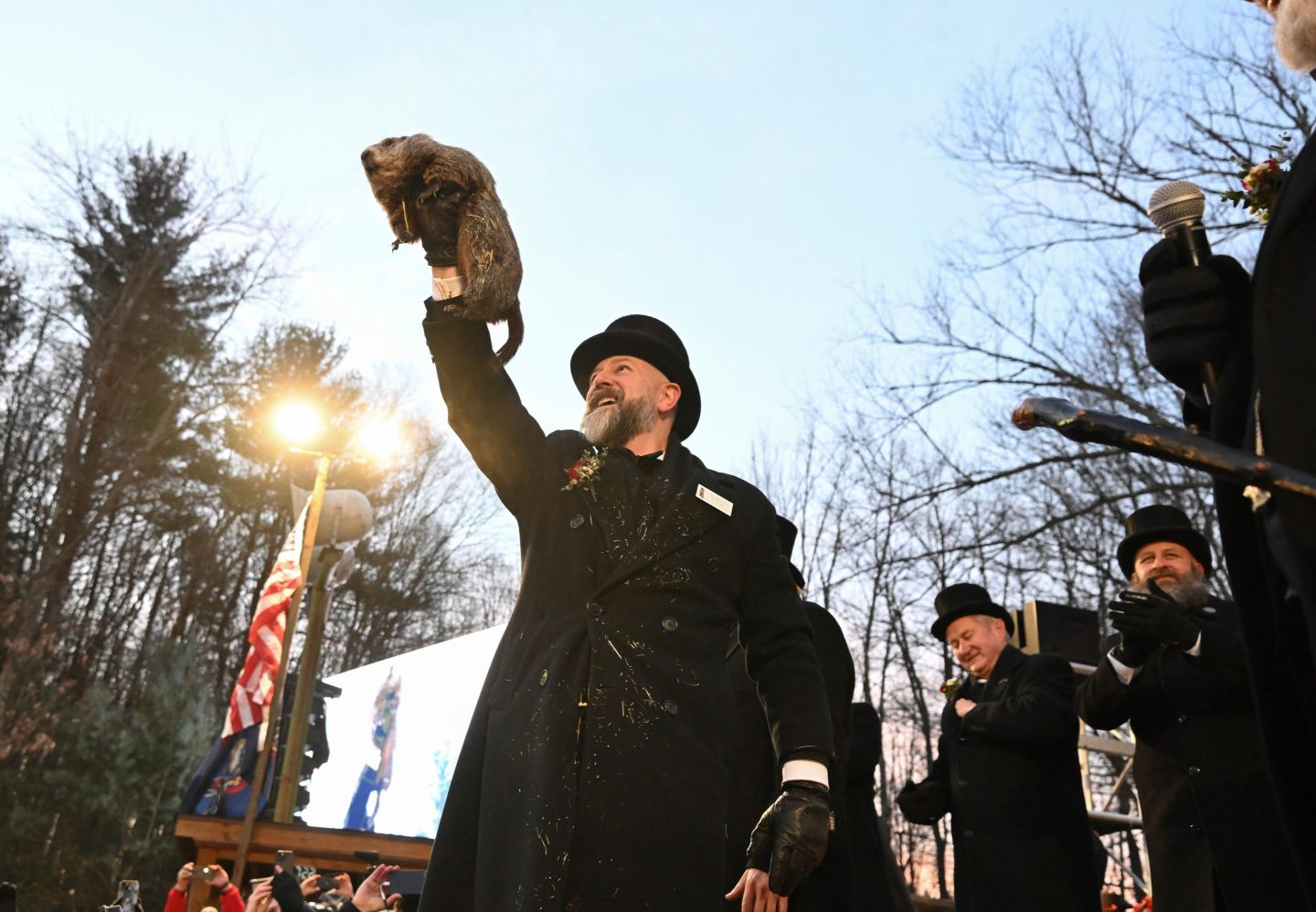Losing your award-winning chef is not a great way for hoteliers to begin a pandemic. But that’s exactly what happened to Sims Foster and Kirsten Harlow Foster, the first couple of third-wave Catskills hospitality, at their culinary-focused property, the DeBruce, in the mountain hollow of Livingston Manor, N.Y.
They found their new executive chef, Eric Leveillee, four hours south in Philadelphia. Leveillee inherited a ghost kitchen and immediately began reassembling his old team like Lieutenant Daniels in the second season of The Wire. The pitch was straightforward: a slower, outdoors lifestyle and gainful employment, with the ability to cook the kind of intricate, place-rooted cuisine (truffled pork cheek and foie gras pie; embers-roasted pear glazed in birch syrup) that had vanished in cities during the shutdown. At current count, this modern country inn employs seven former Philadelphians, with more on the way.
Here’s the story of how this tight-knit Eagles nest made its way north, in their own words.
These interviews have been lightly edited and condensed for clarity.

Sims Foster, owner, Foster Supply Hospitality: At the very beginning of the pandemic, Aksel [Theilkuhl, former executive chef of the DeBruce] came to me and told me he was leaving for family reasons. He was immensely talented, and my heart was broken. But as he was leaving, he was softly recruiting his replacement. He said, “Do you remember Eric, the guy who staged two years ago?”
Eric Leveillee, culinary director, Foster Supply Hospitality, and executive chef, the DeBruce: I staged for Aksel for a sous chef position in 2019. I had never been to the Catskills before, but the DeBruce was named one of the best restaurants in the country in Esquire, and that piqued my attention. I’ve always loved this style of restaurant—the Fävikens of the world, just very in touch with their surroundings. I really loved it up here, but I got another offer, to work at Lacroix at the Rittenhouse [hotel], and it was too good to pass up, so I wound up staying in Philly.
Foster: I’ll never forget what Aksel said: “Eric might be a better cook than me.” He said it with reverence. It carried a lot of weight. So I called Eric.
Leveillee: I was chef de cuisine at Lacroix when the pandemic hit. Everything in Philly was totally shut down, and I had no idea what was going on with the Rittenhouse. Most of my team, we all took jobs at a produce packing warehouse.

Patrick Bones, sous chef, the DeBruce: We were furloughed from Lacroix on March 15, and that furlough was made into a permanent level for most of us around May 1. After that, all the restaurants were closed, so most of us got jobs at a produce packing plant because there was nowhere to cook or serve.
Leveillee: I had stayed in touch with Aksel, and he told me that he wanted to put me in touch with Sims about some opportunity. I had no idea what it was. When Sims called and told me Aksel was actually leaving and the [executive chef] position was available, that opened up a whole different conversation.
Foster: When we opened our first hotel, the Arnold House, in 2014, it was really, really tough [to recruit staff to relocate to the Catskills]. It used to be in our industry, if you wanted to be a serious chef or serious in hospitality you had to be in [a big city]. But more and more we’re seeing people do their time in the city and say, “That’s not the lifestyle I want for the rest of my life.” The pandemic has accelerated these fundamental changes and has actually given people a more reasonable excuse to flee the city and pursue probably what was in their hearts all along.
Leveillee: I wasn’t panicking like, “Oh, I need to get out of this city,” but it was really nice. I remember when we first came up here, we were looking across the beautiful land, walking around, picking wildflowers. I felt very guilty about it.
Foster: We’ve been touting social distancing before it was even a term, and now the world has caught up.
Leveillee: I was sold on [the job] pretty immediately, but every possible thing was kind of lined up against us. My wife, Deva, and I were recently engaged and about to get married. We had been in our new house for two months. She was contracted to work in Princeton for another year. But there was nothing going on for us in Philly, so if there was ever a time to take a risk, it seemed like this was the time.
Foster: Eric and I started talking.
Leveillee: It was a very unique recruitment process because I couldn’t see the restaurant again. I had no idea what had occurred since my stage.
Foster: He couldn’t even come to a tasting.
Leveillee: COVID protocols were so strict, and everybody was so freaked out in the very beginning that it was just not possible. So we chatted a lot on the phone, and, honestly, most of our conversations weren’t about food. We talked a lot about all the other things that we find important in life, and I think that we made a real connection in that way.

Kirsten Harlow Foster, owner, Foster Supply Hospitality: I saw a little glimmer in [Sims’s] eyes after talking to Eric a few times.
Foster: The judgment to hire Eric was based off personality, so the big joke was when he got here, after about a month, I said, “Well, at least I know you can cook now.”
Bones: I’m not gonna lie, I thought Eric was crazy. I was like, “That’s a really bold move.”
Harlow Foster: It was a leap-of-faith moment on all sides. Eric hadn’t even met us in person, and he moved to an area that it was very hard to get to know [during a pandemic].
Leveillee: I moved up in May and walked into a totally empty kitchen. I had one or two staff members that remained from the previous team.
Foster: Probably as soon as Eric and I agreed on the phone that he was going to take the job, I’m sure the next sentence was, “Let’s talk about how I help you recruit the people you need to bring.” Our elevator pitch is: “Do you want to have brunch in the West Village on your day off, or do you want to go kayaking and hiking?”
Julian Meier, executive sous chef, the DeBruce: I always felt that spending time outside was just going to be something I had to sacrifice in order to pursue my cooking career. When Eric told me about this crazy opportunity in the middle of nowhere, to be honest, it sounded almost too good to be true.
Leveillee: Julian and I had actually worked together at almost every restaurant I’ve [cooked at], but we just never really lined up. I knew that he had lived in Colorado and was interested in a more outdoorsy kind of life. He was the first person I reached out to. Actually, Deva reached out to him.
Meier: Deva and I had worked together at Zahav a little more than three years ago. It was April, the height of the pandemic, when she messaged me. I was about to start a new chef management job, and the start date happened to be the day that all restaurants in Philly shut down. It was horrible. Every restaurant I’ve ever worked in, they always need cooks and chefs; it always just felt like a super-stable job market. But [the pandemic] completely flipped it on its head, and I went from feeling like I could walk into most restaurants in the city and find a job to really just like scratching my head when it came to what was going to be next for me. I was actually reapplying for college, so the timing [of Eric’s offer] was super fortuitous. I think within three weeks, I was packing my car and heading up here. I had never ever seen the restaurant until I went to pick up my keys for the house I was going to be living in. The company owns a house down the road, where a lot of our kitchen staff live.
Harlow Foster: The more barriers we can eliminate to help enable someone to make the move upstate, the more success we have in recruitment. Offering six months of temporary staff housing has been a critical component of this strategy. It also gives new team members some time to become more familiar with the area before they have to decide which of the many small but vibrant towns and hamlets they want to call home.
Meier: It made the transition really seamless. To be able to live up here for free, it was like, “What’s the worst that could happen?” I was there for a short amount of time, and now my girlfriend and I are living on one of the farms where we get our produce from.
Foster: This is part of the appeal for culinary people, being able to stop at three farms on your way to work to talk to them about the product that you’re cooking with.
Leveillee: From Julian it started to spread like a web.
Foster: Our strategy at the DeBruce was to create a platform for a chef to execute their absolute creative vision, and then they’re able to sell that to the people they recruit. It starts to waterfall down because they’re telling people, “Come move to the country. It’s a good lifestyle, but more important, this is a career-changing move.”
Benison Tsieh, service manager, the DeBruce: Eric and I first worked together at Whetstone Tavern. I was a food runner, and Eric was not like any other chef that I had worked with. He was passionate and creative, somebody that you were willing to follow.
Leveillee: Ben’s been with me for six years in various different roles. These people become your friends. There’s trust. He knows I would only steer him into a situation that was good for him.
Tsieh: Eric knew I was a little tired of city life, even before COVID, and that I wanted something relaxed and no hustle-bustle. And he knows I care a lot about the hospitality world. My intention was to be up there with him at the end of [2020], but he reached out pretty early during the summer and asked me to fill an open position. He said, “I think it’s a right fit for you,” so I didn’t hesitate.
Andrew Yoast, bar manager, Kenoza Hall: Eric and I worked together years ago at Whetstone. He hit me up out of the blue about becoming part of the service team at the DeBruce, but then [Foster Supply] came back to me with the [bar manager] position at Kenoza Hall, which is the newest hotel.
Kierceton Keller, guest services, the DeBruce: It was a year and change into Andrew and my relationship, and there was this very serious moment of “Okay, are we doing this together?”
Yoast: I’ve never lived anywhere besides Pennsylvania, like, Southeastern Pennsylvania.
Keller: My background is in costume design, and I knew I could pick up that career when [COVID] subsided, but this was Andrew’s first step into the managerial world. So I think to further his career and look more to our future, it was the right decision for both of us to move up here.
Harlow Foster: I don’t know if it has to do with the fact that Sims and I are husband and wife but also business partners—a team both professionally and in our personal lives—but we we have a tremendous amount of couples who work in our company. When we recruit one person and then find out about their other half, it’s usually just as much of a great fit.
Bones: It was a bizarre summer. The restaurant industry in Philadelphia was in shambles. I was working in Fairmount Park at a place called Parks on Tap with another guy who was a sous chef for [Marc] Vetri. So you had a chef from Vetri and me, a chef from Lacroix, serving pretzels and hot dogs in a trailer.
Robert West, sous chef, the DeBruce: I worked at my friend’s doughnut place; I was the chef at a brewery when they were trying to get their takeout together, just doing what I could to keep working, you know?
Jeffrey Davidson, sous chef, the DeBruce: I did whatever I could to make ends meet. I did the produce packing. I worked at a restaurant where they were offering only two days a week, and I just couldn’t live off that. I wound up cooking in a little bar in Port Richmond.
Bones: A lot of people in the city were having to make food to-go and things that just didn’t correlate to the caliber of food that we were cooking before. Eric called me and told me that he had a sous chef position around August. At that time in the city, you didn’t have the freedom to have people sit down to an 11-course tasting menu. This job let us continue working on our craft. I came up here and never left.
West: I knew Deva and Julian from Zahav, and my last sous chef had worked with Eric a lot. I knew through the grapevine that Eric and Julian had come up here, and I started talking to Julian about it, and he told me to email my résumé to Eric. I trusted Julian, so I knew that if he was really into working for Eric, then I probably would too. I’m very much a city dude; I worked in news, for the Philadelphia Inquirer, for 15 years and have only been cooking for three. I’m 45, the old guy in the kitchen, so to be able to learn from Eric [made the decision to relocate] a no-brainer.
Davidson: I’m the youngest one in the kitchen, and I have learned pretty much everything I know from [Eric]. I’ve kinda just been following him around, from Marigold Kitchen to Lacroix, where Pat and I worked on the line directly next to each other every day. But it took me a little bit [to be persuaded to relocate]. I think after the third time of Eric asking me, I drove up here to stage at the tail end of winter. I have front-wheel drive, and the ice destroyed my brakes on my way up here.
Foster: One thing we ask [potential employees] is, “How do you feel about winter?” Because it happens here.
Davidson: I was a day late for my stage, but it worked out. Two weeks ago, my girlfriend and I moved up with our dog and cat.
Bones: We have even more people from Lacroix coming up. It’s like [Eric] is reassembling the old team we had prior to the pandemic.
Leveillee: [Following a boss] isn’t necessarily unique to the restaurant industry, but it is bizarre—in a really great way—to be able to take 10 or 12 people with you wherever you go.
Davidson: It’s very teamwork-oriented here. It’s honestly a good feeling because it makes you feel like people have your back rather than, you know, just fighting to stay alive. We all sit down and have a staff meal together. We all talk about hanging out on our days off. It’s a good feeling. We’re all connected in that weird Philadelphia way.
Bones: Philly is always treated as New York’s little brother, as far as dining. We have a lot to prove now that we’re in their backyard.
Leveillee: Chefs have weird self-doubt issues pretty much across the board, and in a city like Philadelphia, where there’s a lot of food media and a lot of restaurants to compare myself with…I’ve really enjoyed being separated from that a little bit. Now I just focus on being with my team, cooking the food that we love to cook, and making sure that we’re putting out a product we all believe in. I used to think that I was the worst chef in the world, but I think the fact that people want to work here, maybe signifies something different.












